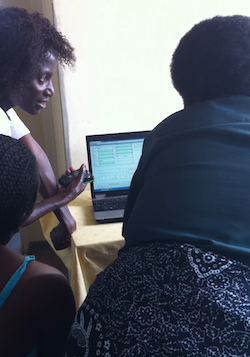About the project
Objectives
- Student mobility between UiO, UEM and UNIMA on Master and PhD level.
- Improved health informatics curricula for the partners.
- Strengthened PhD-programs at UEM and UNIMA.
- Mutual credit transfer for courses at master and PhD level.
- Improved quality of research publications of the partners, in particular at UEM and UNIMA.
- Internships for UiO students at Baobab and UNICEF in Malawi.
- Internships for UEM and UNIMA students in the DHIS2 software team in Oslo.
- Bringing the long-term relationship between UiO, UEM and UNIMA to the next level in terms of joint student supervision, joint academic research and teaching.
- Reduced time of completion for Master students at UEM and UNIMA.
- Sustained capacity to support the DHIS2 software implementations in Malawi, Mozambique and in their region.
Financing
ETHIC is financed by NORPART (Norwegian Partnership Programme for Global Academic Cooperation) in the period 2017-2021, supporting academic partnerships and student mobility with an emphasis on Master and PhD level between higher education institutions in Norway and selected developing countries.
Cooperation
Universidade Eduardo Mondlane
UEM was established by decree-law No. 44 530 of August 21 1962, as Estudos Gerais e Universitários de Moçambique (EGUM), as a Portuguese colonial technical college to train the offspring’s of the settlers. In its early years, EGUM offered academic programmes in education, medicine, agronomy and veterinary sciences, as well as civil engineering, mining, electrical and chemical engineering. By Decree-Law No 48790 of December 23, 1968 the EGUM was elevated to the category of University, adopting the name of University of Lourenço Marques (ULM). ULM extended its academic programmes to include applied mathematics, physics, chemistry, biology and geology, as well as Roman philology, history, geography, economics and metallurgical engineering. Since May 1, 1976, in the aftermath of Mozambique’s independence, the University was named after Eduardo Mondlane, founding father and first President of the Front for the Liberation of Mozambique (FRELIMO). Until 1984, UEM remained the sole higher education institution (HEI) in the country and played an important role in the training of highly positioned staff at national and international level. In 1985 and 1986 two new public HEIs came into existence, namely the Higher Pedagogical Institute (ISP) and the Higher Institute for International Relations (ISRI). The former was designed to train teachers and was founded after the closure of the UEM’s Faculty of Education, and the latter was established to train professional diplomats. Currently, UEM has approximately 36,864 students of which 92.1% are undergraduates and 7.9% are postgraduates (the large majority being nationals and few international).
Website: http://www.uem.mz/
University of Malawi (UNIMA)
The University of Malawi (UNIMA) was founded in 1964. Currently, the University has 4 constituent colleges namely: Chancellor College, the College of Medicine, the Polytechnic, and the Kamuzu College of Nursing. The key UNIMA partner in this application is the Department of Computer Science at Chancellor College. Over the past decade, the Department has collaborated with UiO in supporting health information systems implementation in Malawi. Key outputs from this collaboration include implementation of DHIS2 and introduction of mobile technology solutions for health data reporting. UNIMA has only 3 members of staff with PhDs in Information Systems and Computer Science (2 from
UiO, QUOTA funded). In its strategic plan for the years 2012 to 2017, UNIMA observes that study opportunities at postgraduate level, in particular PhD, remain weak. Thus, developing required staff capacity to further research and education is limited. To influence regional development, UNIMA has the ambition to attract international students to its postgraduate programmes. In 2009, in a bid to further postgraduate training in informatics in the areas of health and development, Chancellor College, the College of Medicine and the Polytechnic partnered with UiO in establishing a Masters in Informatics and a health informatics track on the Master of Public Health programme, both SIU-NOMA funded. The MSc in Informatics programme has maintained an average class size of 20 students since then. In 2015, the programme attracted over 60 applicants, of whom 46 met the requirements for admission. The strategic plan of UNIMA acknowledges partnerships with regional and international Universities, which can lead to joint postgraduate programmes and staff exchange.
Website: http://www.unima.mw/
The two first students Mari and Helene watching while the Dean at the University of Malawi is cutting the ribbon for inaugurating the programme in January, 2017.
Students from UiO who have/will be supported from ETHIC
Norah Nguyen
Thea Thodesen
Uy Tran
Ariel Karlsen
Arne Røen
Gagandeep Kaur


